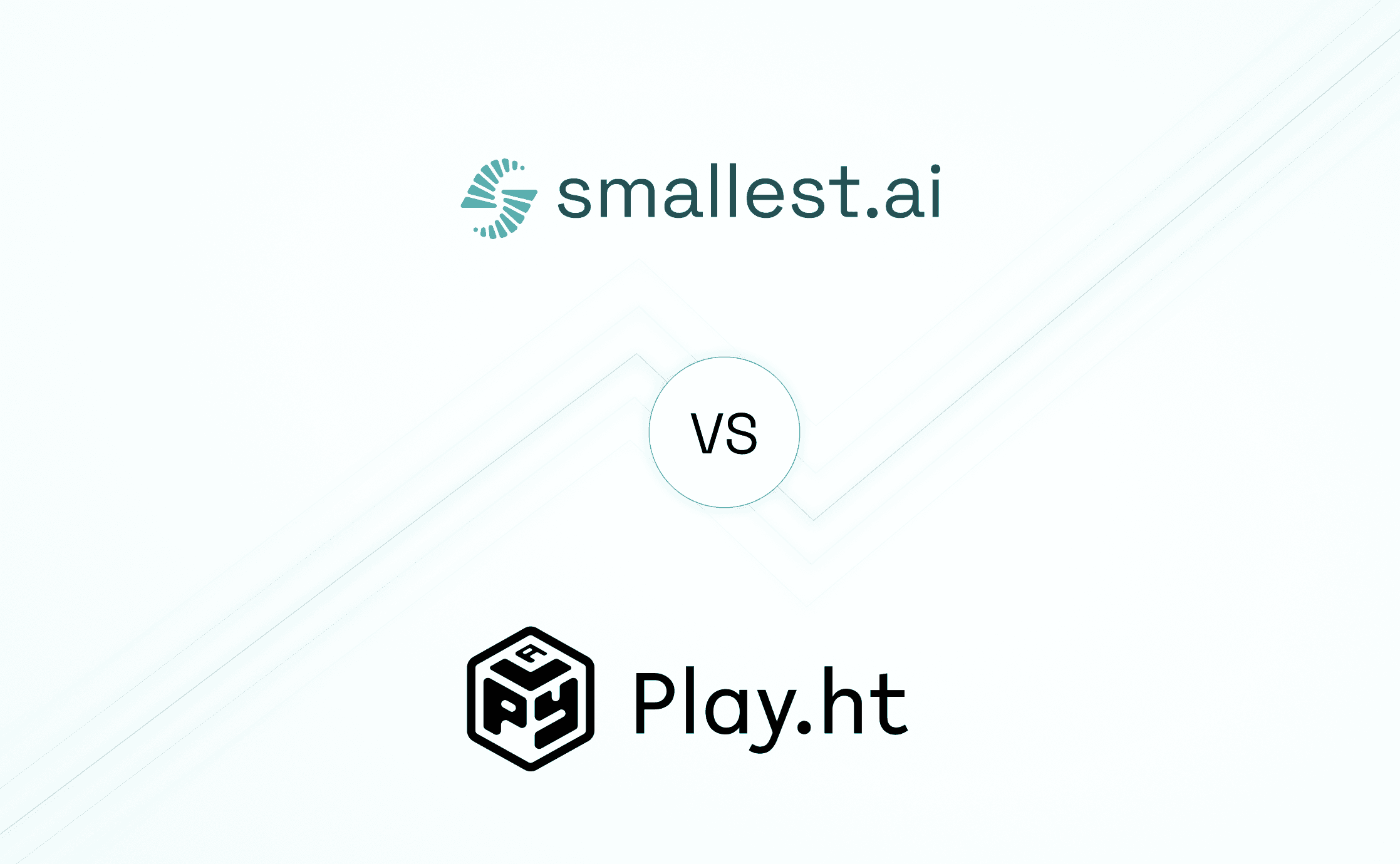Compare Smallest.ai vs Play.ht for Text-to-Speech. Explore hyper-realistic voices, latency, API access, pricing, voice cloning precision, and language support.

Kaushal Choudhary
Updated on
December 26, 2025 at 11:37 AM
client = Smallest(api_key="SMALLEST_API_KEY")
client.synthesize("Hello, this is a test for sync synthesis function.", save_as="sync_synthesize.wav")Make sure to Install the play.ht library first.pip install pyht
from pyht import Client
from dotenv import load_dotenv
from pyht.client import TTSOptions
import os
load_dotenv()
client = Client(
user_id=os.getenv("PLAY_HT_USER_ID"),
api_key=os.getenv("PLAY_HT_API_KEY"),
)
options = TTSOptions(voice="s3://voice-cloning-zero-shot/775ae416-49bb-4fb6-bd45-740f205d20a1/jennifersaad/manifest.json")
Open a file to save the audio
with open("output_jenn.wav", "wb") as audio_file:
for chunk in client.tts("Hi, I'm Jennifer from Play. How can I help you today?", options, voice_engine = 'PlayDialog-http'):
# Write the audio chunk to the file
audio_file.write(chunk)
print("Audio saved as output_jenn.wav")
PricingSmallest.ai and Play.ht both offer premium plans with different scaling and usage options. Play.ht has five tiers, plus a custom enterprise plan, and a free tier with one voice clone and a 12,500 character limit. Smallest.ai provides a more affordable alternative, with a free tier offering one voice clone and 30 minutes of audio generation, while individual plans go up to $50, and business plans vary based on scale and usage. For the most up-to-date information please refer to their official pricing page: smallest.ai, play.htConclusionSmallest.ai emerges as the clear leader with its hyper-realistic voice synthesis, unmatched processing speed, and affordable pricing structure. Its ability to handle real-time applications with low latency and emotional nuance makes it the go-to choice for users seeking top-tier TTS solutions.In contrast, Play.ht, while user-friendly and offering decent voice customization, struggles with scalability and cost-effectiveness for larger or more complex projects. These limitations, combined with its higher latency compared to Smallest.ai, make Smallest.ai the superior choice for those looking for an innovative, efficient, and cost-effective TTS platform.

